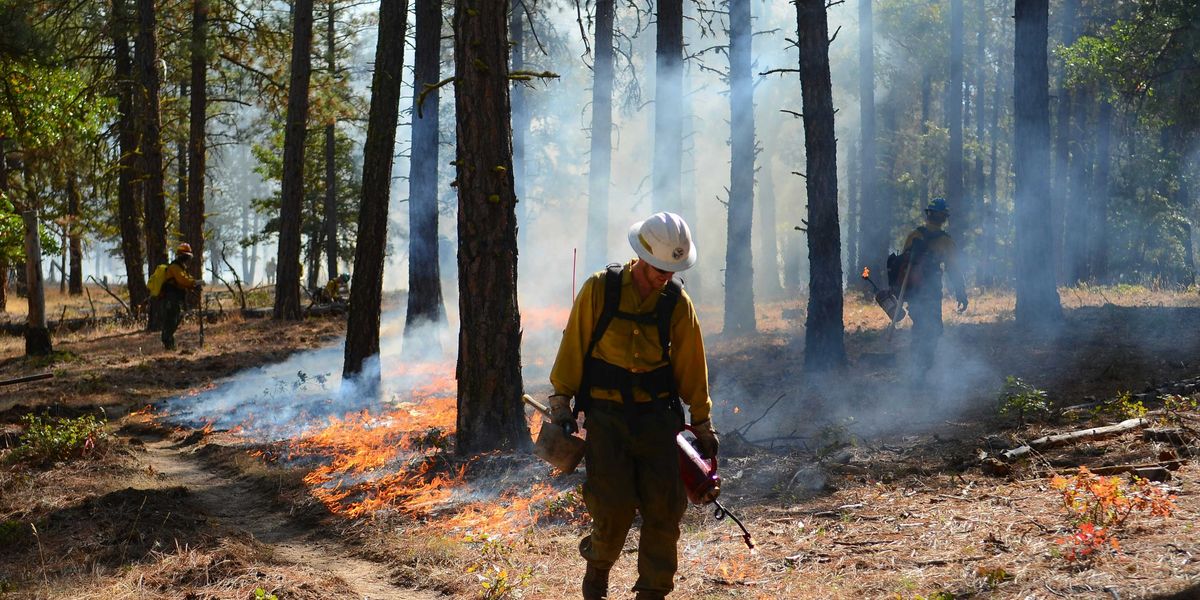legislation
South Korea’s constitutional court orders stronger climate roadmap
South Korea’s constitutional court ruled that the government must revise its climate law to include detailed steps to meet its 2050 carbon neutrality goal.
In short:
- A South Korean court ruled that the government’s current climate plans are insufficient and ordered the National Assembly to revise them by 2026.
- The case, led by over 250 plaintiffs, including children and an unborn child, argued that a stronger roadmap is needed to protect citizens’ right to life.
- This decision could set a legal precedent across Asia, where similar climate lawsuits are underway.
Key quote:
"The court made it very clear that the climate crisis is a scientific and legal fact, and they acknowledged that the state has a duty to protect people from climate change."
— Byung-Joo Lee, attorney for the plaintiffs.
Why this matters:
This ruling highlights the growing global trend of climate lawsuits, especially by younger generations, demanding immediate action to ensure a livable future. South Korea's decision may influence similar cases worldwide, pushing governments to create enforceable climate plans.
Related: South Korea ordered to set stricter carbon targets by 2031
Biden enacts legislation to boost nuclear energy
President Biden signed the ADVANCE Act to expedite the deployment of advanced nuclear reactors, aiming to enhance nuclear technology as a zero-carbon energy source.
In short:
- The ADVANCE Act aims to streamline permitting, enhance resources for the Nuclear Regulatory Commission (NRC), and promote global nuclear deployment.
- Implementation may be impacted by the current vacancy on the NRC, which could depend on the 2025 presidential election outcome.
- The legislation signifies a shift in NRC's mission to support nuclear industry growth, raising concerns about regulatory independence.
Key quote:
"If this mythology that nuclear power is completely safe — that it doesn’t need to be heavily regulated — takes hold, we could see a whole generation of really dangerous experimental nuclear facilities being licensed and built around the world."
— Edwin Lyman, director of nuclear power safety at the Union of Concerned Scientists
Why this matters:
Advanced nuclear reactors promise to be safer and more efficient than traditional models, offering a sustainable alternative to fossil fuels. With the ADVANCE Act, the federal government is paving the way for accelerated development and implementation of these reactors, potentially transforming the energy landscape.
Vermont takes bold steps to combat climate change
Governor Phil Scott has allowed Vermont's groundbreaking climate legislation to pass without his signature, marking a pivotal moment in the state's environmental policy.
In short:
- The “Climate Superfund Act” requires major oil companies to pay for climate change damages in Vermont, calculated based on their emissions from 1995 to 2024.
- Vermont's new “Flood Safety Act” introduces stricter building regulations in river corridors, enhances wetland protections, and increases dam safety to mitigate future flooding risks.
- Despite concerns about legal challenges and implementation timelines, these laws aim to fund climate resilience projects and reduce future disaster costs.
Key quote:
“What’s incredibly clear is these companies that are responsible for the climate crisis aren’t going to pay Vermont a dime unless we take an action like this.”
— Ben Edgerly Walsh, Vermont Public Interest Research Group
Why this matters:
Vermont's new laws set a national precedent by holding oil companies accountable and proactively addressing climate change impacts, hopefully leading to improved public health and environmental resilience. Read more: How the “Halliburton Loophole” lets fracking companies pollute water with no oversight.
Effort to reduce plastic waste in New York gains momentum
New York State is on the verge of passing legislation to significantly reduce single-use plastic waste, potentially setting a precedent for other states.
In short:
- The proposed Packaging Reduction and Recycling Infrastructure Act aims to cut plastic packaging by 50% over 12 years by pushing companies to use sustainable alternatives or pay fees.
- Fees collected would fund recycling and waste management infrastructure, potentially bringing New York City $150 million.
- The bill also seeks to ban 19 of the most toxic chemicals in plastic packaging, following examples set by other states like California and Maine.
Key quote:
“We must go after the producers who contribute to the plastics crisis and not place the burden on individuals.”
— Elijah Hutchinson, executive director of the Mayor’s Office of Climate and Environmental Justice
Why this matters:
This legislation addresses the escalating plastic waste crisis, aiming to reduce landfill waste by six million pounds daily. Its success could inspire similar actions nationwide, promoting healthier environmental practices and reducing public health risks from microplastics. Read more: California moves forward with landmark plastic waste reduction law.
Vermont debates new climate compensation bill targeting fossil fuel firms
Vermont is considering a groundbreaking bill that would use a "Superfund" model to recover costs from fossil fuel companies for climate-related damages, reflecting a shift toward climate adaptation.
In short:
- The proposed Climate Superfund Act in Vermont aims to implement the "polluter pays" principle to address costs from climate change impacts.
- The bill has passed the Vermont Senate and is supported by a majority in the House, signaling strong legislative backing.
- Financial contributions from fossil fuel companies would fund infrastructure updates and other adaptive measures in Vermont.
Key quote:
“One thing that it definitely isn’t about is cutting carbon pollution. This one really is about what are the effects of the climate crisis going to be on Vermont, how we make them less severe, less costly, and how do we pay for them when they inevitably do come?”
— Ben Edgerly-Walsh, director the climate and energy program at the Vermont Public Interest Research Group
Why this matters:
This bill could set a precedent for other states, offering a template for linking climate-related damages to corporate accountability, and moving toward adaptation strategies.
Learn more about the impact fossil fuels have on our health: Fossil fuels and petrochemicals may be making us sicker.
Lawmakers target fossil fuel companies to fund climate disaster recovery
State legislators are pushing for laws that would make fossil fuel companies financially responsible for climate change-related disasters.
In short:
- Advanced "attribution science" enables precise measurement of damages from climate disasters, directly linking them to specific companies' emissions.
- Vermont leads with proposed legislation, potentially setting a precedent for other states to follow in holding fossil fuel companies accountable.
- The proposed laws could lead to significant financial contributions from these companies for disaster relief and preventive measures.
Key quote:
“This is a growing field, and it’s a game changer for addressing climate change.”
— Delta Merner, lead scientist for the Science Hub for Climate Litigation at the Union of Concerned Scientists
Why this matters:
By holding companies responsible for their role in climate change, legislators aim to mitigate adverse health effects and safety risks associated with extreme weather events like hurricanes, floods, and wildfires, which are intensified by climate change. Such legislation can incentivize fossil fuel companies to adopt more sustainable practices, reducing environmental damage and promoting conservation efforts.
Europe's court asserts climate safety as a human right, inviting new legal challenges
Europe's leading human rights court has declared that protection from climate change is a fundamental human right, opening the door for individuals to sue their governments over environmental inaction.
In short:
- Europe's top human rights court has decided that safety from climate change is a human right, affecting nearly 50 governments and around 700 million people.
- This precedent-setting judgment allows for national lawsuits against governments for failing to protect citizens from climate dangers.
- Despite dismissing two other climate cases on technical grounds, the court provided guidance for future litigation, suggesting a new pathway for climate-related legal actions.
Key quote:
The verdict will serve "as a blueprint for how to successfully sue your own government over climate failures."
— Ruth Delbaere, legal specialist at Avaaz
Why this matters:
The acknowledgment of climate safety as a fundamental human right represents a new level of commitment to protecting the most vulnerable populations from the adverse effects of environmental degradation.









